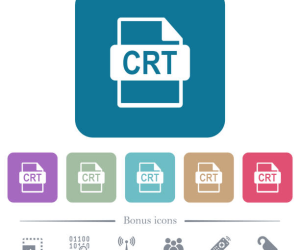
The world is in a tough spot financially. Everywhere you look, there are reports of people struggling to make ends meet. And it seems like every time you turn on the news; there’s another story about someone who has filed for bankruptcy or lost their home to foreclosure.
It can be hard to know what to do when you’re feeling so overwhelmed and uncertain about your future. But even in the darkest of times, there is always hope. You can do things to improve your financial situation and get your life back on track. Below is an outline of seven ways to save money in your daily life.
1. Live Below Your Means
One of the best ways to save money is to live below your means. This means spending less than you earn each month so that you have extra money left over to save or invest.
Living below your means can be tough, especially if you’re used to spending your monthly money. But it’s important to remember that you don’t need to spend everything you have just because you have it.
Start by evaluating your spending and see where you can cut back. For example, try cooking more meals at home if you’re eating out a lot. Or, if you’re spending a lot on clothes, see if you can shop at thrift stores or buy items on sale. Use the Amazon discount finder tool when shopping online. Check them out to find more options on their site and compare prices. The key is finding ways to save money on the things you spend the most.
2. Track Your Spending
The first step to saving money is understanding where your money is going. You can’t change your spending habits if you don’t know where your money is being spent in the first place.
There are several ways you can track your spending. You can use a budgeting app, like Mint or YNAB, or write down your expenditures in a notebook. Whichever method you choose, ensure you’re tracking all of your expenses, including fixed costs (like rent or mortgage payments) and variable costs (like groceries and entertainment).
Once you understand where your money is going, you can start to make changes. Identify areas where you’re spending too much money and see if there are ways you can cut back. For example, if you’re spending $200 a month on takeout meals, see if you can cook more meals at home and only eat out once or twice a month.
3. Create a Budget
A budget is a tool that can help you control your spending and save money. When you create a budget, you decide in advance how you will spend your money each month. This means you’re less likely to make impulse purchases or overspend in any area.
Creating a budget may seem daunting, but it doesn’t have to be complicated. You can use a simple Excel spreadsheet or even just pen and paper. Start by listing your income sources (like your salary, freelance work, or investments) and then list your expenses. Make sure to include both fixed costs (like rent) and variable costs (like groceries).
Once your income and expenses are listed, compare the two to see where you can make cuts. For example, if you’re spending more on entertainment than savings, consider reducing your entertainment budget and increasing your savings contributions.
4. Automate Your Finances
One of the best ways to save money is to automate your finances. This means setting up automatic transfers from your checking account to your savings account so that you’re automatically saving money each month.
You can also automate your bill payments so that you never worry about forgetting to pay a bill or incurring late fees. This may seem small, but it can make a big difference in your financial health.
5. Save Your Money
Saving money is key to financial success. You should create a savings goal for yourself and ensure you’re contributing to your monthly savings account. A good rule of thumb is to save at least 10% of your income, but if you can save more, even better.
If you’re having trouble saving money, you can try a few tricks. One is to set up a separate savings account that’s not easily accessible (like a high-yield savings account or a mutual fund). This way, you won’t be tempted to spend the money you’re supposed to save.
Another option is to have your employer deduct a certain amount from your paycheck and deposit it into your savings account. This way, you won’t even see the money and will be less likely to spend it.
6. Invest Your Money
Investing is another key element of financial success. When you invest, you’re essentially putting your money into something that has the potential to grow over time. This can be a great way to secure your financial future and build your wealth over time.
There are several different ways you can invest your money. One option is to invest in stocks, which can give you the potential to make a lot of money if done correctly but also comes with more risk. Another option is to invest in mutual funds or index funds, which tend to be less risky but have lower potential returns.
7. Make a Plan
One of the best ways to save money is to make a plan. This means setting goals for yourself and creating a strategy for how you will reach those goals.
When making a financial plan, start by evaluating your current situation and setting some financial goals. For example, do you want to save up for a down payment on a house? Do you want to pay off all of your debt? Do you want to build up your emergency fund?
Do you want to save money on your business expenses? For the latter, you can do so by pursuing sustainable leadership measures where your company can be more sustainable and yet, enjoy reduced expenses. You can reduce your impact on the environment and save your business money.
Once you have your goals set, you can start creating a plan for how you will reach them. This may include setting up a budget, automating your finances, investing your money, or living below your means. Whatever strategy you choose, make sure it’s one you’re comfortable with and think will work best for you.
Saving money takes time and effort, but it’s worth it in the long run. By following these simple tips, you can save money every month. The more you save, the closer you’ll reach your financial goals. So start saving today and enjoy a bright future tomorrow.



